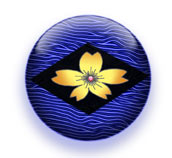On The Way: The Daily Zen Journal
The Spur for a Good Horse, Part I
Torei Enji (1721-1792)
The true nature with which people are endowed, and the fundamental nature of the buddhas, are not two. They are equal in their virtue and majesty; the same light and glory are there.
The wisdom and wonderful powers are the same: like the radiance of the sun illuminating mountains and rivers and the whole wide earth, lighting up the lowest life forms just as much as gold and jewels.
Though the fundamental nature of all the buddhas and living beings is the same and not distinct, their minds are looking in quite different directions. The Buddha faces inward and makes the heart-essence shine forth. The ordinary person faces outward, and is concerned with the ten thousand things.
If one wants to get out of the worlds of suffering, first of all one has to realize how they are all the time passing away. What is born, inevitably dies. Youth cannot be depended on, power is precarious, wealth and fame crumble away. Status requires constant vigilance to preserve it.
The longest life hardly gets beyond eighty years. Since therefore it is all melting away, there is nothing enjoyable about it. The badly off suffer from not having things; the well-off suffer from having them. The high suffer from being highly placed, and the despised suffer from being lowly placed. There is suffering connected with clothes and food, suffering with the family, suffering from wealth and possessions, suffering from official rank.
So long as the nature is not freed from passions, and the path of seeking release has not been found, our time here is very insubstantial, like a lightning flash or a dewdrop under the morning sun, gone in a moment. 
When karma happens to be favorable, these things appear solid enough, but as the favorable karma dissipates, it turns out that there was never anything there at all.
However much we cling to this temporary abode, we cannot expect it to last forever. To realize the Four Noble Truths, that all this is passing, painful, empty, and without a self, and to see the way of bodhi intelligence, is what we call the Dharma of Hearing the Noble Truths.
If you want to grasp the nature of the universal body of all the buddhas, first you must be clear about, and then you must enlighten, the root of ignorance in you. How is it to be made clear?
You must search after your true nature. How to search? In the eye, seeing of colors; in the ear, hearing of sounds; in the body, feeling distinctions of heat and cold; in the consciousness, feelings of wrong and right: all these must be seen clearly as they are.
This seeing and hearing and knowing is at the root of the practice. The ordinary person sees colors and is deluded by colors, hears voices and is deluded by voices, feels heat and cold and is deluded by them. This is what is meant by the saying: “The ordinary person looks outward.”
The training of the bodhisattva is: when looking at some color, to ask herself, what it is that is being seen; when hearing some sound, to ask himself what it is that is being heard; when feeling hot or cold, to ask what is being felt; when distinguishing right from wrong, to ask what is being known? This is called the “facing inward of the buddhas.”
Practicing it is different from facing in the direction in which the ordinary person looks. At first, though facing the same way as the Buddha, the buddha power and wisdom are not manifest. These first steps are those of baby bodhisattvas, and one can begin to appreciate entering the company of buddhas.
Torei Enji (1721-1792)
Excerpted from The Three Ages of Zen By Trevor Leggett, 1993




After sitting we enter our day and want to take some of that aware tranquility with us into our next actions. How quickly that sublime equanimity can fade if not tended with some Way to transform our experience of daily life?
The essence of the questioning mentioned by Torei amounts to just that, the ability to stand apart and question all manner of things we see and do in life. Many are happiest questioning things outside themselves, the safe areas to question.
The key for us however is to pause long enough to be able to question at all; to learn how to create a space wherein something new can be born. This pause alone opens up the ability to see and hear in new ways, allows an opening for something fresh to happen.
Early on in practice one hears, “If you want to become a sage, you have to love the way of the sages.”
After that we are left to discover what exactly is the way of the sages. And if we have a good teacher, they aim at not telling us too much, instead encouraging that process of discovery. Fewer answers, more questions….
Pausing to view the flowering of the trees,
Elana, Scribe for Daily Zen